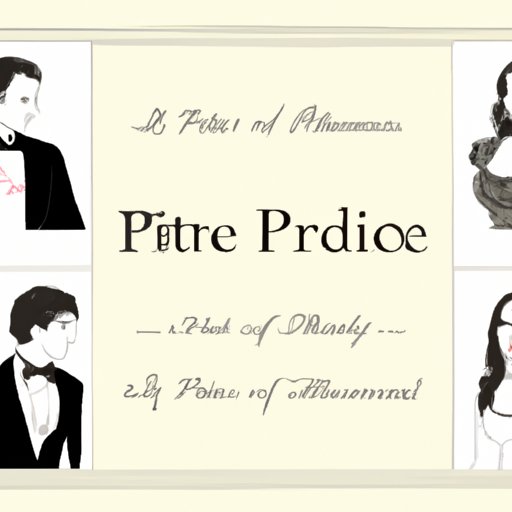I. Introduction
In Jane Austen’s Pride and Prejudice, the character of Mr. Darcy famously refers to Elizabeth Bennet as “barely tolerable.” This statement has puzzled and intrigued readers for centuries, leading to debates about Mr. Darcy’s character and motives. In this article, we will analyze the factors that contribute to Mr. Darcy’s negative first impression of Elizabeth and how societal and personal biases can shape our perceptions of others.
II. Mr. Darcy’s character and initial assessment of Elizabeth
To understand why Mr. Darcy calls Elizabeth barely tolerable, it is necessary to examine his character and personality traits. Mr. Darcy is portrayed as proud, haughty, and reserved, with a tendency to judge others harshly. When he first meets Elizabeth, he is unimpressed by her inferior social standing and dismisses her as unworthy of his attention. However, Elizabeth’s wit and intelligence challenge his assumptions and leave a lasting impression on him.
Mr. Darcy initially finds Elizabeth’s manners and behavior to be vulgar and lacking in refinement. He is also put off by her family’s low social status and her lack of wealth and connections. Additionally, Elizabeth’s outspokenness and tendency to speak her mind may have been considered unbecoming of a woman in Georgian society. These factors contribute to Mr. Darcy’s negative assessment of Elizabeth and influences their early interactions.
III. Societal norms and expectations of women in the Georgian era
To fully understand the context of Pride and Prejudice, it is necessary to consider the societal norms and expectations placed on women in the Georgian era. Women were expected to marry well, preferably to men of wealth and status. Education was not considered necessary for women beyond the basics of reading, writing, and needlework. Additionally, women were expected to maintain a high level of decorum and modesty, and any display of independence or assertiveness was frowned upon.
These societal norms undoubtedly influenced Mr. Darcy’s perception of Elizabeth and other characters in the novel. His initial dismissal of Elizabeth based on her lack of social standing and connections reflects the importance placed on marriage and rank in Georgian society. Elizabeth’s intelligence and independence threaten his sense of superiority and challenge his expectations of what a woman should be like.
IV. Mr. Darcy’s transformation: from barely tolerable to desirable
As the novel progresses, Mr. Darcy’s opinion of Elizabeth undergoes a profound shift. He begins to appreciate her wit, intelligence, and admirable qualities, such as her loyalty to her family and her sense of honor. The refusal of his marriage proposal by Elizabeth forces him to confront his own flaws and prejudices, and he recognizes the error of his ways.
Mr. Darcy’s transformation from a haughty and judgmental aristocrat to a more humble and compassionate lover highlights the importance of overcoming biases and prejudices. Pride and prejudice are not just themes of the novel but also lessons that Mr. Darcy must learn in order to appreciate Elizabeth’s true worth.
V. The role of pride and prejudice in the novel
Pride and prejudice are central themes of the novel, affecting not only Mr. Darcy but also other characters, such as Elizabeth and Jane Bennet. These biases prevent characters from seeing others accurately and formulating relationships based on mutual respect and understanding.
Mr. Darcy’s own pride and arrogance contributes to his poor assessment of Elizabeth, and it is only through recognizing and addressing these flaws that he is able to overcome them. Elizabeth herself must also confront her own prejudices, such as her initial dismissal of Mr. Darcy as a cold and unfeeling man.
VI. Conclusion
The infamous statement, “barely tolerable,” reveals not only Mr. Darcy’s initial biases but also the societal and cultural norms that shaped his thinking. By examining Mr. Darcy’s character and societal context, we can better understand the complex relationships and themes of Pride and Prejudice. Additionally, the novel highlights the importance of challenging our own biases and prejudices in order to form genuine connections with others.
Through the transformation of Mr. Darcy and Elizabeth, we see the possibility of growth and change, even in the face of societal norms and personal flaws. Pride and Prejudice continues to resonate with readers today, reminding us of the ongoing importance of empathy, humility, and understanding in our relationships with others.
